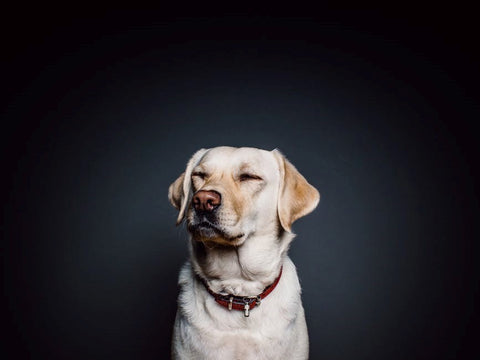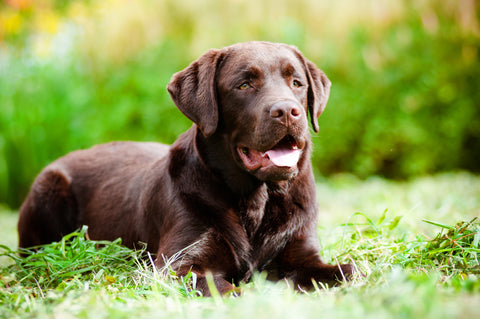
Help your dog lose weight: What’s his dieting personality?
Just like humans, different dogs need different diets to help them lose weight. Your dog could be overweight for a few reasons – so you’ll need to make lifestyle changes according to what helps your dog the most. There tend to be four different types of dog – which is yours?
The best dog diet to lose weight comes down to their foodie personality; is your dog a Sneaky Snacker, a Picky Pooch, and Ever-Hungry Hound, or a Rewarded Rover? Find out below…
1. Sneaky Snackers
Profile: The counter-surfing, bin-buffet-loving, snack-seeking missile in canine form. These are the dogs who will do anything for a little extra, hoover up anything you (or your little ones) drop, and scour the park for lost chips!
Lifestyle changes to help your dog lose weight:
-
Control your dog’s diet and change your habits, too – no more cheeky chips or dropped biscuits!
-
Be super-vigilant about the extra snacks that they sneak.
-
Keep your bin in a cupboard or out of reach to avoid any bin-diving.
-
Keep your dog in another room while the kids eat to avoid any dropped food or sneaky treats from the table.
-
Look out for what they’re eating on walks and keep them on-lead if it helps to avoid key snacking-hotspots.
2. Picky Pooches
Profile: These dogs seem to ‘barely eat a thing’, turning their nose up at their doggy diet and waiting instead for treats and human food snacks. Thankfully, with a bit of tough love, Picky Pooches are the easiest troublesome eaters to manage!

Have you got a fussy friend?
Lifestyle changes to help your dog lose weight:
- Stop any extras such as treats and human food – only give them the option to eat dog food.
- If they don’t eat their food within 30 minutes, take it away until next mealtime. They’ll soon learn that this is their only source of food and they’d better eat up.
- If you’re feeding dry food, try adding a little warm water to release the smell; this can help to tempt a Picky Pooch into eating. Or, try mixing a little wet and dry food together.
Remember: Dogs can skip odd meals without adverse effects, and they will eat when they get hungry enough – though if they don’t eat anything for more than 24 hours, have a chat with your vet about what to do next.
3. Ever-Hungry Hounds
Profile: Some dogs, like some people, are unlucky when it comes to metabolism, and simply don’t burn as many calories as others. Though you may be feeding no excess treats, and following the pack instructions to the milligram, they still seem to put on weight. These are the dogs that you might call ‘big boned’!

Is your dog always hungry?
Lifestyle changes to help your dog lose weight:
- For these dogs, it’s important to chat to your vet to decide the right amount of food to give to help your dog lose weight.
- Investigate diet foods and look at bulking your dog’s food with healthy veggies to add fibre. This can help your dog feel fuller, even if they’re on a smaller ration (one in five measure portion size) – there’s even something called the ‘green bean diet’ for dogs!
- Gradually up the Ever-Hungry Hound’s exercise and think about ways to be more active wherever possible.
- There are lots of gentle ways to increase their activity around the home too, including toys you can fill with kibble from their daily allowance. Have a chat with your vet or vet nurse about the right exercise plan for your best friend and ask for suggestions about what’s ideal for their age and breed.
- In some cases, there are medical ways to help, too. Speak to your vet.
4. Rewarded Rovers
Profile: This is more about humans than your dog and can stem from your own relationship with food. Do you always reward good behaviour with snacks and treats? Maybe you compensate for a missed walk or a long day at home with chews, treats and a big dinner?

Do you praise your dog with food?
Lifestyle changes to help your dog lose weight:
- Start thinking about other kinds of rewards, like games or walks.
- Though dogs are naturally quite active and don’t tend to lose weight through increased exercise alone, by swapping the way you reward your dog, you’ll reduce excess calorie intake whilst cherishing your bond.
What kind of doggy dieter is your four-legged friend? Once you know where the problem lies, you’ll be able to make changes to best help the slimming process. Be sure to read our blog on top tips to help your dog lose weight for more advice on overweight dog dieting. Is your faithful friend trying to lose weight? Be sure to tell us your tips and stories – either comment below or find us on Facebook. We’d love to see your progress!





